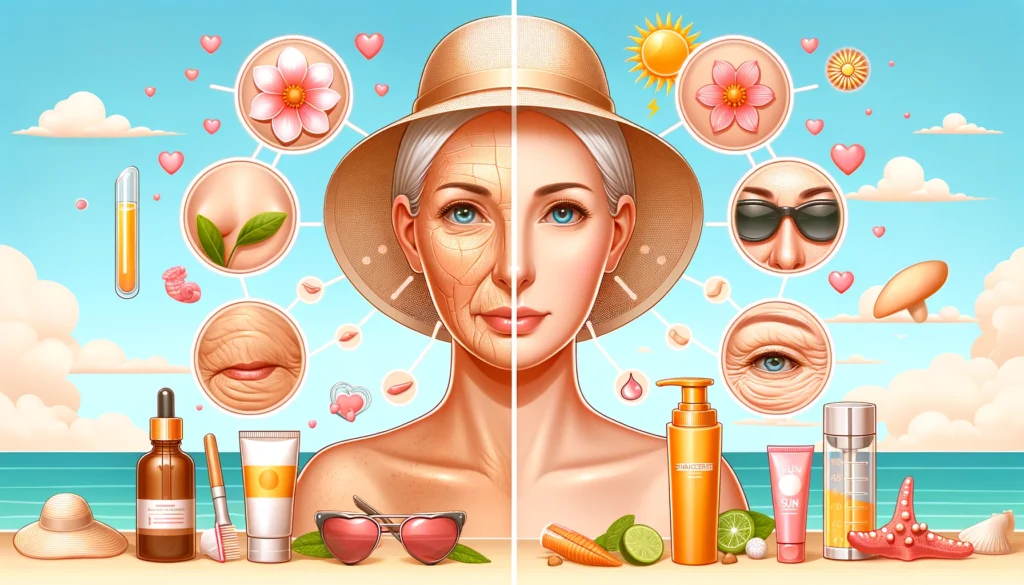Sun exposure is a significant factor in skin aging. While a sunny day can boost your mood and provide essential Vitamin D, too much sun can have detrimental effects on your skin. This blog post aims to shed light on how sun damage accelerates skin aging and what steps you can take to protect your skin and minimize these effects.
The Science Behind Sun Damage and Skin Aging
Sunlight emits ultraviolet (UV) rays that can be harmful to the skin. UV rays penetrate the skin and damage the collagen fibers, leading to a loss of elasticity and the formation of wrinkles. According to the Skin Cancer Foundation, up to 90% of visible skin aging is caused by sun damage.

Types of UV Rays and Their Effects
There are two types of UV rays that impact the skin: UVA and UVB. UVA rays penetrate deep into the skin and are primarily responsible for aging, while UVB rays cause sunburns. Both contribute to an increased risk of skin cancer.
Recognizing the Signs of Sun-Damaged Skin
Sun damage can manifest in various ways, including:
- Fine lines and wrinkles
- Age spots and hyperpigmentation
- Loss of skin elasticity
- Rough, leathery texture
- Redness and inflammation
Prevention: Your First Line of Defense
The best strategy against sun damage is prevention. Dermatologists recommend:
- Using Broad-Spectrum Sunscreen: Choose a sunscreen with at least SPF 30 that protects against both UVA and UVB rays. Reapply every two hours, especially if swimming or sweating.
- Wearing Protective Clothing: Hats, sunglasses, and long-sleeved shirts can offer additional protection.
- Seeking Shade: Avoid direct sun exposure during peak hours (10 a.m. to 4 p.m.).
Repairing Sun-Damaged Skin
While prevention is key, there are ways to mitigate existing sun damage:
- Topical Treatments: Products containing retinoids, vitamin C, and alpha hydroxy acids can help reduce signs of aging and improve skin texture.
- Professional Treatments: Chemical peels, laser therapy, and microdermabrasion are options for more significant damage.
The Role of Diet and Hydration
A healthy diet rich in antioxidants can help protect your skin from the inside out. Foods high in vitamins C and E, such as berries, nuts, and leafy greens, can combat free radical damage. Additionally, staying hydrated helps maintain skin elasticity.
Conclusion
Understanding and protecting against sun damage are crucial steps in maintaining youthful, healthy skin. By incorporating preventive measures and addressing existing damage, you can significantly reduce the effects of the sun on your skin aging process.









